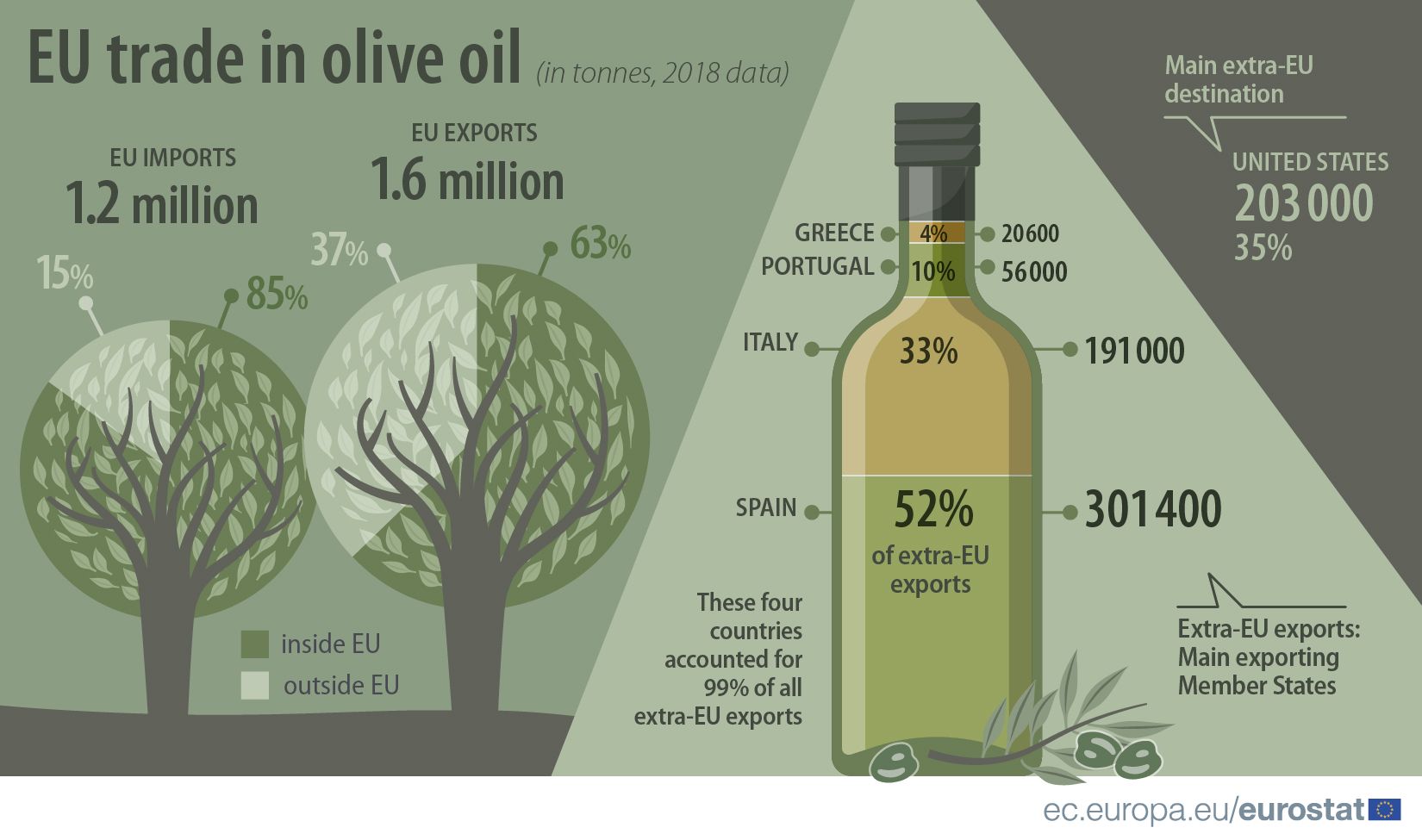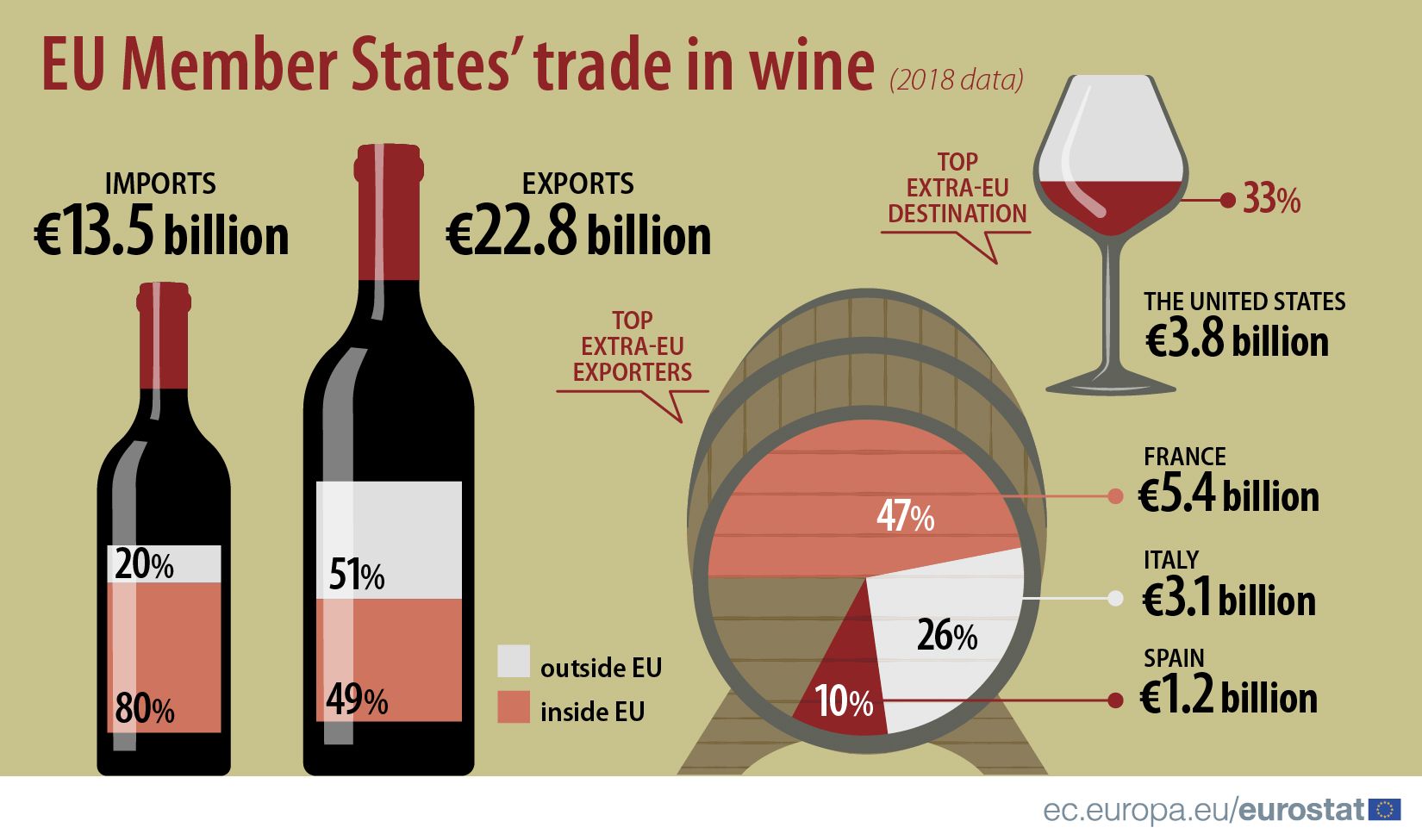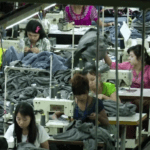EU trade in olive oil
EU Member States exported over 1.6 million tonnes of olive oil in 2018, worth €5.7 billion. Almost two thirds of these exports went to other EU Member States (63%, or 1.0 million tonnes). This represents a 15% increase in the value of EU Member States’ total exports compared with 2013.
In 2018, the EU Member States imported 1.2 million tonnes of olives, worth €3.9 billion. Majority of these imports came from other EU Member States (85%, or 1.0 million tonnes). The value of olive oil imports to the EU Member States increased 10% compared with 2013.
Spain, largest olive oil exporter
Among EU Member States, Spain exported 301 400 tonnes of olive oil to non-EU Member States in 2018 (52% of extra-EU exports of olive oil in weight). This makes Spain by far the largest EU exporter of olive oil to the rest of the world, followed by Italy (191 000 tonnes, 33%), Portugal (56 000 tonnes, 10%) and Greece (20 600 tonnes, 4%). These four countries accounted for 99% of all extra-EU exports of olive oil in 2018.
The United States – main destination for exported olive oil
Over a third of EU olive oil exports went to the United States (203 000 tonnes, or 35% of extra-EU exports of oil olive), followed by Brazil (65 000 tonnes, 11%), Japan (52 000 tonnes, 9%), China (35 000 tonnes, 6%), Canada (31 000 tonnes, 5%) and Australia (29 000 tonnes, 5%).
Wine production and trade in the EU
Top exporter: France
In 2018, the EU Member States exported €22.7 billion (bn) of wine. Over half of this wine was exported to countries outside of the EU (€11.6 bn, or 51% of the total wine exports), mainly to the United States (€3.8 bn, or 33% of extra-EU exports), followed by Switzerland (€1.0 bn, 9%), China (€1.0 bn, 8%), Canada (€0.9 bn, 8%), Japan and Hong Kong (both €0.8 bn, 7%).
France was by far the top exporter of wine, with extra-EU exports worth €5.4 bn in 2018, representing 47% of the EU Member States’ extra-EU exports of wine. It was followed by Italy (€3.1 bn, 26%) and Spain (€1.2 bn, 10%).
Top importer: The United Kingdom
Looking at the import flows, the EU Member States imported a total of €13.4 bn of wine in 2018. Only 20% of this came from non-EU countries, notably from Chile (€0.6 bn, 22% of extra-EU imports), Australia (€0.45 bn, 17%), the United States (€0.43 bn, 16%), South Africa (€0.4 bn, 15%) and New Zealand (€0.37 bn, 14%).
Among the EU Member States, the largest importer of wine was the United Kingdom (€1.2 bn, or 47% of the EU Member States’ extra-EU imports), followed by Germany (€0.3 bn, 11%), the Netherlands (€0.2 bn, 9%) and France (€0.2 bn, 8%).








Leave a Reply